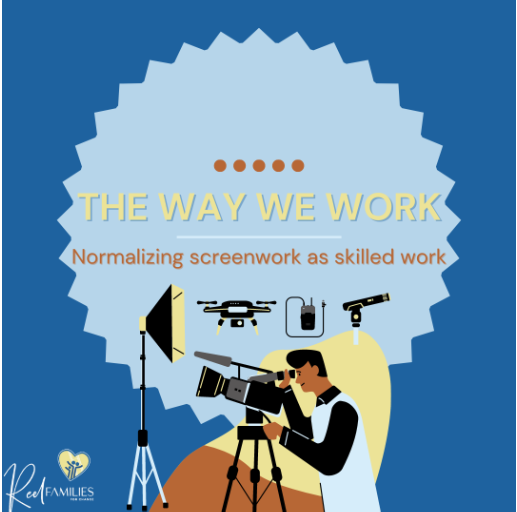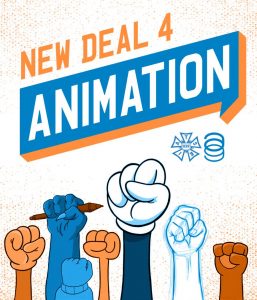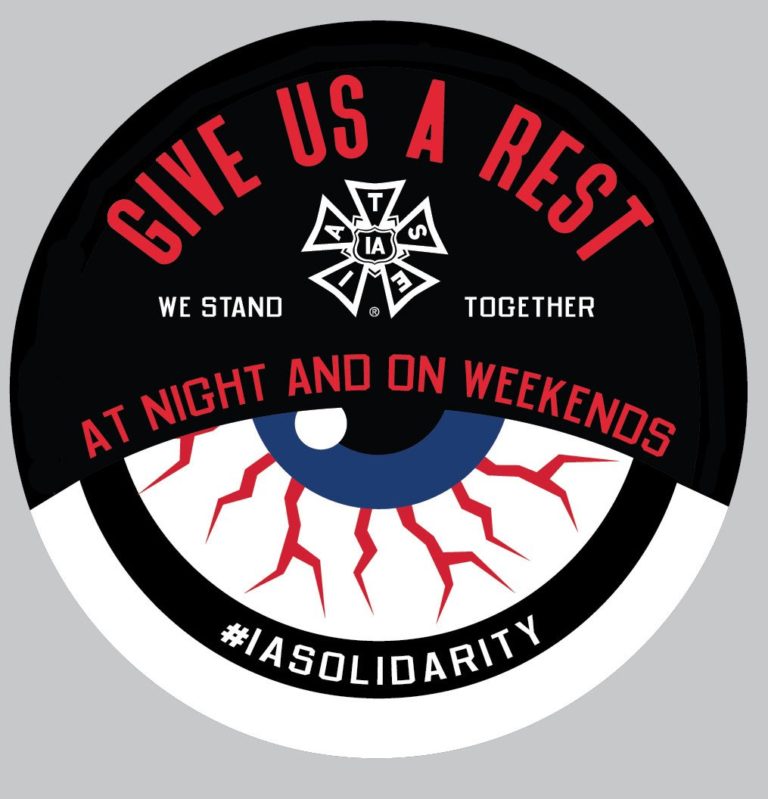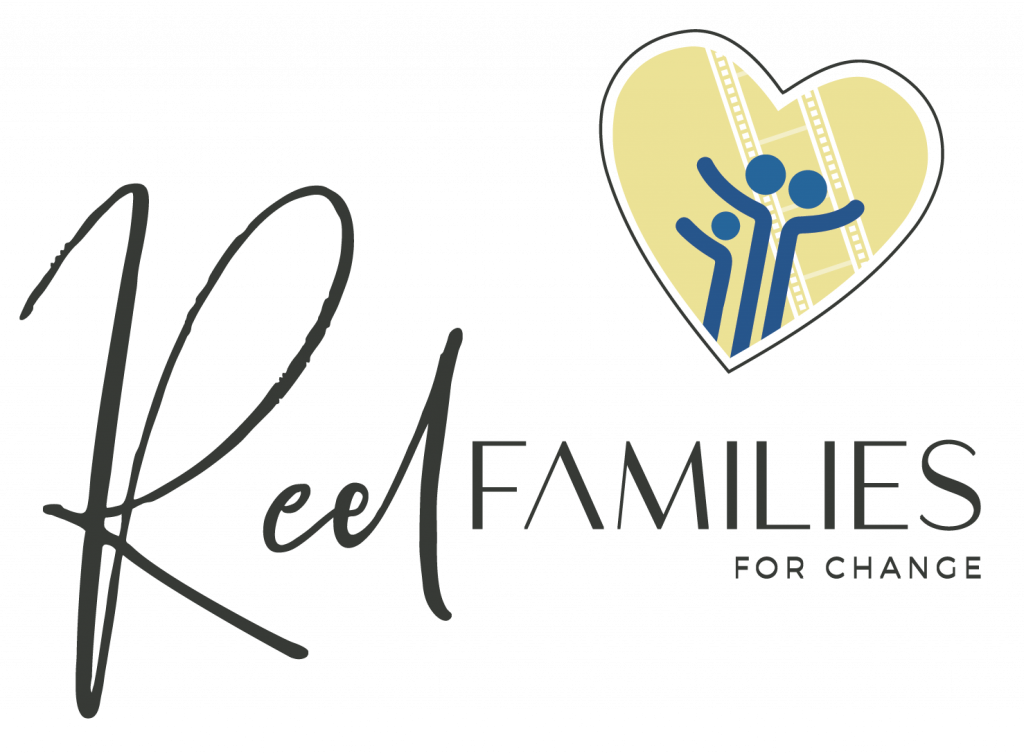A look at why validating and legitimizing screen work is the first step toward improving worker conditions.
The way we work - part 1
Written by Sarah Lutot

Arts and culture has helped shape American society for centuries; becoming a mainstay in our personal development and well-being far beyond its consumption as entertainment. So why is arts work often not deemed “real work”; especially when it pertains to certain “escapist” crafts like film, television, and other moving media?
The discourse around creative jobs tends to be that it is work that we “get to do;” a sentiment that often leads to unrealistic employer expectations, worker violations, and lack of effective interventions traditionally afforded to those in other industries.
Unlike many of our counterparts, filmmakers often find themselves working in extreme weather conditions, at dangerous locations, and/or using hazardous equipment. The standard filmmaker’s workday is already four hours longer than most traditional jobs at 12, which hinders individuals’ opportunity to rest and increases their likelihood for mistake, disposition to increased health risks, or even experiencing fatal injury. When one considers that the filmmaker’s standard day typically runs into overtime upward of 4-6 additional hours – with some employers attempting to reclassify what counts as overtime in an effort not to pay – these egregious, we begin to see even more of the social effects, with filmmakers’ divorce rates akin to most of our nation’s first responders.
So, if the pandemic has shown us how important health, safety, and family truly are – and filmmakers are losing out on all of the above at a disproportionate rate – why aren’t people up in arms about the horrendous treatment of those who’ve fed their binge frenzies since the pre-pandemic days?

Likewise, the organization seeks to redistribute the responsibility for changemaking. Their programs are cross-functional and multi-dimensional. Using an actionable approach of “learn, teach, grow” the organization works with all stakeholders, from industry decision-makers to the film enthusiast, in order to help them understand the nature of the work being doing by RFC, why it matters, and how each can help from their own point of entry.
This model relieves production-based screen workers from a martyr-style responsibility of legitimizing their profession, advocating for the application of basic human rights afforded to their peers in other professions, and breaking down walls that get in the way of success while simultaneously staying hidden so as not to perform potential career suicide. Likewise, it empowers those beyond the production to get involved and work in tandem with production partners to eradicate systemic barriers to equal/equitable opportunity.
By making these prohibitors nonexistent, filmmakers can thrive in their work, and still have time for their personal lives. This is one of the main reasons that many of RFC’s programs and initiatives center on building integrative production practices that acknowledge the benefits of having balanced personal experiences beyond work.
If RFC has their way, the days of working in fear rather than motivated by support will soon be behind us. Reel Families for Change strives to reimagine a production process that values everyone, from pre-production to post-production and all points in between. Normalizing work-life balance is the fast, efficient, and effective way to increase diversity, ensure equity, broaden our stories, and enrich the lives of everyone involved – on both sides of the screen.
It would seem that the issue is two-fold. On the one hand, rights-waiving contracts and normalized fear-mongering, often used to deter and exclude already marginalized and underrepresented people from succeeding in the film have resulted in toxic work environments that range from emotionally unhealthy to physically unsafe, making many afraid to speak publicly about the harms they’ve endured. The Instagram profile, @ia_stories, is evidence of that. But on the other hand, there is the issue of misunderstanding and glamorizing. The public’s direct association with Hollywood being only the content they consume and the red carpet events they stream have offered little exposure to or opportunity to contemplate about the harsh realities of our working conditions, allowing them to look the other way.
So, just how are we supposed to tackle such inherently pervasive systems of inequity, toxicity, and harm when film workers are being forced into silence and the public doesn’t seem to notice?
Enter: Reel Families for Change (RFC). We’re an organization that believes all filmmakers should have access to the kinds of resources and support that accelerates their career success while prioritizing their well-being. The organization gives special consideration to marginalized and underrepresented populations working in the industry – which for RFC also includes parents, caregivers, and guardians.

A foremost goal of Reel Families for Change is to combat the reprehensibly invasive time expectations placed on film workers – including seven-day workweeks, as well as overnight and weekend film shoots – by creating sustainable solutions that promote healthy, people-centric, and family-friendly production practices. From basic federally protected rights like nursing rooms and pumping stations to compassionate considerations like on-site childcare and portable family leave, RFC is committed to seeing family-supportive filmmaking practices become a norm in the screen industry. Their dedicated team of advisers, ambassadors, and subject matter experts work hard to ensure that filmmakers never again have to choose between making a living doing the work they love or building a life with the ones they love.




